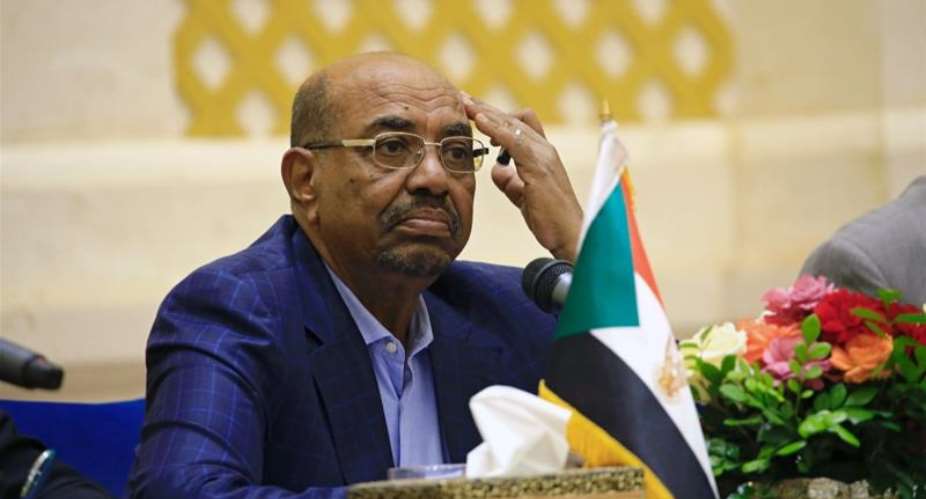Security agencies across Africa and beyond are taking notes of the situation in Sudan; particularly how the embattled president Omar Hassan al-Bashir is dealing with the people-power-wave that has engulfed his country since December last year.
For the first time in many months, street demonstrations by Sudanese professional associations had by early March significantly ebbed, enabling final-year secondary school students peacefully write their examinations from over 3,000 centers in the country.
Among measures pledged by Bashir is to form a new government predominantly comprising the country’s cream technocrats to fix the economy. In the meantime, other sweeping changes he pronounced include dissolution of the unity government, a one-year state of emergence, and suspension of the constitutional amendment process as well as appointing experienced army generals as governors in all the 18 federal states.
Conceding responsibility of government failure to adequately fix the current economic challenges that have led to galloping inflation, Bashir called for a true nationalist and patriotic united effort to address it. He appealed for calm in order to give these measures a chance of functioning.
On one hand, Sudanese people seem to have listened to him and given him the benefit of doubt. On the other, he is actually challenging the groups that have been responsible for sketching, directing and guiding the public demonstrations.
By dissolving the cabinet, the Sudanese president is essentially telling his critics thus: ‘Hey guys! Here you are; you can now prepare to occupy those technical positions to prove your worth.’
First, in order to pass the moral integrity test of competence to occupy a public office, the technocrats have to within these few months demonstrate ability to follow and respect legitimate public orders. This implies they have to respectively vet among themselves to nominate the best for public office service. Now the competent nominees, by simple logic cannot remain to be the same organizing violent extremism. Bedsides, such conducts now risk making their perpetrators victims of the current ad hock courts of emergence.
Yet Bashir is also throwing a carrot to the youth. He is candidly inviting them to present their grievances and perceptions of how to respond to them. This entails some organization and paperwork. It calls for a retreat from the physical street demonstrations to the intellectual boardroom engagements. This obviously causes a vital lull in the chaos that had for three consecutive months characterized Sudan.
From a security perspective, therefore, Sudan has, offered yet a new approach in dealing with the people-power wave. This phenomenon that has since been branded as ‘Africa’s 3rdmajor political wave’ is currently sweeping across the continent. The 1st wave started in 1956 in Sudan for independence, followed by Ghana in 1957. The second wave was about restoration of multiparty democracy in early 1990s. The 3rdand current one started a dozen years ago in Nairobi, Kenya 2007. During then Kenyans prevented president Mwai Kibaki from reassuming the reins of power after being controversially sworn in by the country’s chief justice at night. It adopted a violent approach claiming over a thousand lives. Four years later, the same approach was adopted by three North African nations of Tunisia, Egypt and Libya—fatally claiming the life of Muammar Gaddafi. In West Africa, the regional military, Ecomog has been at standby to intervene whenever signs of this wave turning violent emerge. And in east and central Africa, ruling establishments have conducted timely internal changes and reforms to bring down boiling public sentiments.
Guided by experience from elsewhere, while the Sudanese model is cognizant of the people’s genuine grievances, it is compelling ‘civility’ to take precedence for the sake of preserving the country. Its message seems to be positively reverberating and getting accepted across Sudan.
By Swaib K Nsereko
PhD Candidate, Communication Science, University of Gezira, Sudan/ Asst Lecturer, Islamic University in Uganda





 Former Kotoko Player George Asare elected SRC President at PUG Law Faculty
Former Kotoko Player George Asare elected SRC President at PUG Law Faculty
 2024 elections: Consider ‘dumsor’ when casting your votes; NPP deserves less — P...
2024 elections: Consider ‘dumsor’ when casting your votes; NPP deserves less — P...
 You have no grounds to call Mahama incompetent; you’ve failed — Prof. Marfo blas...
You have no grounds to call Mahama incompetent; you’ve failed — Prof. Marfo blas...
 2024 elections: NPP creates better policies for people like us; we’ll vote for B...
2024 elections: NPP creates better policies for people like us; we’ll vote for B...
 Don’t exchange your life for wealth; a sparkle of fire can be your end — Gender ...
Don’t exchange your life for wealth; a sparkle of fire can be your end — Gender ...
 Ghana’s newly installed Poland train reportedly involved in accident while on a ...
Ghana’s newly installed Poland train reportedly involved in accident while on a ...
 Chieftaincy disputes: Government imposes 4pm to 7am curfew on Sampa township
Chieftaincy disputes: Government imposes 4pm to 7am curfew on Sampa township
 Franklin Cudjoe fumes at unaccountable wasteful executive living large at the ex...
Franklin Cudjoe fumes at unaccountable wasteful executive living large at the ex...
 I'll 'stoop too low' for votes; I'm never moved by your propaganda — Oquaye Jnr ...
I'll 'stoop too low' for votes; I'm never moved by your propaganda — Oquaye Jnr ...
 Kumasi Thermal Plant commissioning: I pray God opens the eyes of leaders who don...
Kumasi Thermal Plant commissioning: I pray God opens the eyes of leaders who don...
